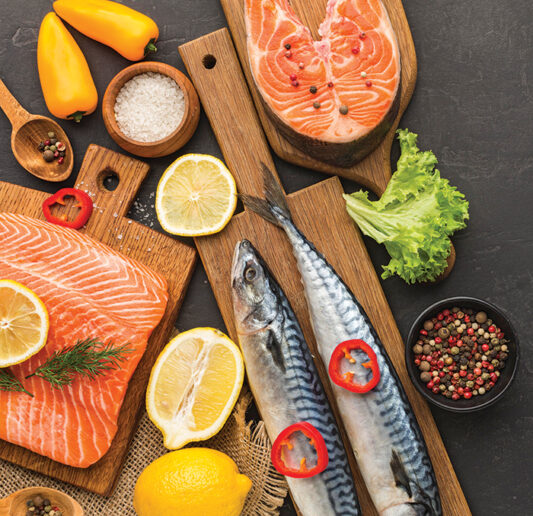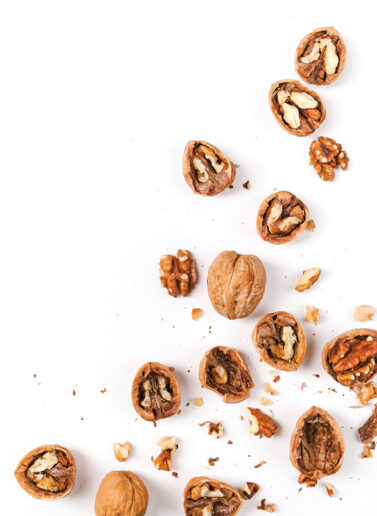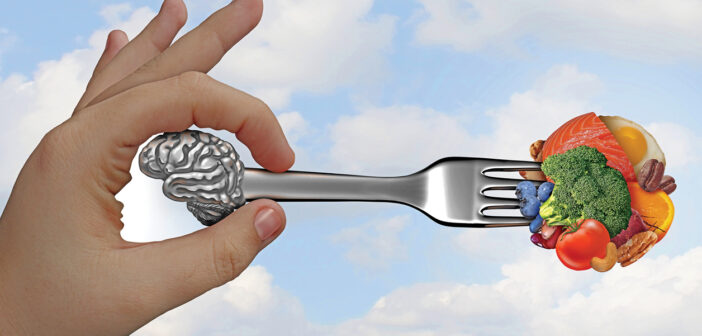Believe it or not, the foods you consume can play a major role in your overall state of mind. So if you are looking for ways to boost your mood and feel better overall, read on!
Many of us know that nutrition directly impacts our physical health, but did you know that it also significantly influences our mental health? Making simple dietary changes can drastically affect the way you think and feel. In fact, certain foods and nutrients have been said to reduce symptoms of depression and anxiety, as well as improve overall mental well-being. Examples of these powerful tools include leafy greens, fatty fish, colorful fruits and vegetables, nuts and seeds, probiotics such as yogurt or kombucha, and essential vitamins and minerals like magnesium or B vitamins. We all have an opportunity to better our mental health simply by making positive dietary choices!
Top Foods for Mental Clarity & Concentration
Eating the right foods can make a huge difference in your ability to stay alert, think clearly and concentrate. Essential nutrients like protein, Omega-3s and B vitamins are key for keeping our brains healthy and sharp. Foods rich in these nutrients can help us maintain balanced moods and improve our memory. Fatty fish, nuts and seeds, eggs, dark leafy greens, wild blueberries, beets, whole grains and avocados are recommended for their proteins, healthy fats, vitamins and minerals, which aid in boosting cognitive ability along with providing essential building blocks for brain function. If you want to sharpen your focus and reach peak performance while boosting your mental health, packing your diet with these superfoods may be the remedy.

Oily Fish: Rich in Omega-3 Fatty Acids
The oils of mackerel, tuna and salmon are loaded with the essential fatty acid, Omega-3 – essential for improving mental health and emotional stability. These fatty acids have been scientifically proven to help reduce the risks of depression, panic attacks and stress and provide an array of other mental health benefits. There’s a reason why it’s so widely recommended to consume these sources of Omega-3 fatty acids on a regular basis: they really can make a huge impact on one’s mental well-being.
Leafy Greens: Packed with Vitamins & Minerals
When it comes to supporting mental health, leafy greens are an excellent choice. Popeye wasn’t wrong – these nutrient powerhouses deliver vitamins and minerals that can help boost mood and increase energy levels. Leafy greens can range in variety from spinach to arugula, kale and bok choy, each with its own unique nutrition benefits – but each is a great source of folic acid, iron and vitamin C. Eating leafy greens on a regular basis can slow cognitive decline by 30%, and is associated with greater happiness and overall mental well-being. All it takes is one cup a day for maximum resilience against anxiety and stress.

Nuts & Seeds: Healthy Fats & Protein
Healthy fats and protein help contribute to improved mental health. Both walnuts and almonds contain polyunsaturated fatty acids that have been found to improve mood and cognitive function, while pumpkin, sesame and flax seeds offer essential minerals like zinc for enhanced brain activity. Eating nuts as part of a balanced diet can also lower cholesterol levels, which is helpful in reducing anxiety over time. Nuts and seeds can be incorporated into both sweet and savory recipes from muffins to salads, for delicious meals with extra mental health benefits.
Water & Hydration
Our brains are 85% water, so it’s no surprise that drinking enough fluids daily can improve mental performance and cognitive abilities. Low levels of hydration often lead to difficulty concentrating, memory problems, low energy, mood swings and a weakened immune system. Staying hydrated helps flush out toxins and replenish vital electrolytes needed for optimum brain function.

Vitamin D & Sunlight
Vitamin D is often referred to as the “Sunshine Vitamin” and for a good reason – it’s produced in our skin when exposed to UV rays from the sun. Vitamin D has been linked to improved mental health, including reduced anxiety and depression symptoms, and can be found naturally in foods like oily fish and eggs. For those living in more northerly climates where sunlight is sparse during the winter months, supplementing with a vitamin D pill can be beneficial to maintaining a healthy mind.

Foods to Avoid
 When it comes to mental health, what we put into our bodies can be just as important as the activities we do. Eating a nutritious diet is an easy way to improve your mood and outlook on life. To boost your mental health, consider avoiding sugary desserts and snacks, processed meats and artificial sweeteners. Eating unprocessed, whole foods rich in proteins, healthy fats, and fiber is one of the best ways to get essential nutrients that can help reduce stress, increase energy levels and even improve sleep quality. Try incorporating more leafy greens into your diet such as kale and spinach, as well as healthy sources of carbohydrates like oats, quinoa and sweet potatoes – all of which have been linked to improved mental health.
When it comes to mental health, what we put into our bodies can be just as important as the activities we do. Eating a nutritious diet is an easy way to improve your mood and outlook on life. To boost your mental health, consider avoiding sugary desserts and snacks, processed meats and artificial sweeteners. Eating unprocessed, whole foods rich in proteins, healthy fats, and fiber is one of the best ways to get essential nutrients that can help reduce stress, increase energy levels and even improve sleep quality. Try incorporating more leafy greens into your diet such as kale and spinach, as well as healthy sources of carbohydrates like oats, quinoa and sweet potatoes – all of which have been linked to improved mental health.

Sugary Drinks & Processed Snacks
These food choices often accompany activities such as watching TV, using the computer, eating in a restaurant or grabbing a snack on the go. While these items may provide short-term satisfaction, they negatively impact our overall health. Cutting down on sugar-sweetened beverages such as sodas and specialty coffee drinks can help reduce weight gain and decrease your risk for type 2 diabetes. Depending on the ingredients, processed snacks contain high levels of sodium and sugar. Improving your diet by reducing or eliminating sugary drinks and processed snacks is a great way to start looking after your mental health through better nutrition.
Alcohol & Caffeinated Beverages
It is widely known that alcohol and caffeine can have adverse effects on our mental health, so it’s important to consume them in moderation. However, monitoring your intake isn’t always easy. A good rule is to limit alcoholic drinks to one or two per day and no more than four or five drinks per week. On the other hand, caffeine can offer benefits when consumed in moderation – up to 400 milligrams daily – as it has been associated with increased alertness, improved concentration and better mood. Thus, while it’s important to be mindful when consuming these beverages, some amounts can be beneficial as part of a balanced diet.

Incorporating These Foods into Your Daily Diet
When it comes to nutrition and mental health, there are certain foods that can help support improved overall well-being. Incorporating key nutrients such as omega-3 fatty acids, B vitamins and minerals, probiotics, antioxidants, amino acids and magnesium into your daily diet will aid in reducing anxiety levels and improving mood. Having healthy eating habits is one of the most important things you can do to improve your mental health. One way to ensure you get sufficient nutrition is to plan meals ahead of time, including foods that are both nutritious and satisfying. Eating a balanced diet with a mix of plant-based proteins and fruits and vegetables packed with vitamins and minerals will keep you feeling physically and mentally energized throughout the day.
 Eat Better for Your Mind, Body & Soul
Eat Better for Your Mind, Body & Soul
With a combination of protein, fiber and multiple micronutrients from plant-based sources like legumes, fruits, vegetables and whole grains as a starting point for good nutrition, you can positively impact both your physical and emotional health. Eating more nutrient-dense foods containing high amounts of essential vitamins, minerals and omega-3 fatty acids helps support brain function and overall mental well-being. A balanced diet helps boost serotonin levels for healthy emotional responses to stress, releases hormones that promote healing and restoration during sleep and prevents excessive inflammation caused by unhealthy foods or overeating.
Making wise dietary choices has lasting effects on your emotional state and overall health; it is an effective form of holistic self-care that supports the mind, body and soul.














